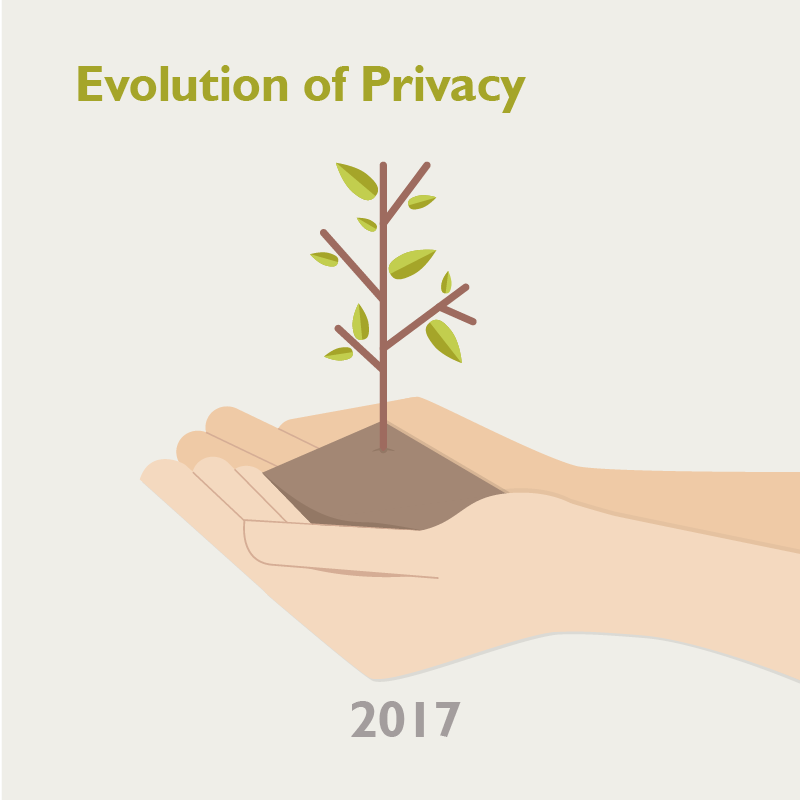Privacy is a process. So, what can we expect in 2017?
Three trends, privacy and big data protection will bring about changes in terms of privacy automation, legislation and open data.
Privacy Automation (Adoption)
Many companies are now understanding that privacy helps facilitate business growth by building the public’s trust in their brand. To keep up with the demand for privacy and to comply with the law (more in the next section), companies will become more reliant on software solutions in the year ahead. Specifically, 2017 can see increases in three specific types of applications:
- Data Mapping software that will be used to assist governance officers by developing privacy and security maps of their data assets in accordance to the pertinent legislation.
- Assessment Automation software which will consist of a variety of tools that can help Privacy and Security Officers assess and track the risk of their organization.
- Process Automation software will continue to be used to reduce costs in time and money, but there will be an increase in Privacy & Cybersecurity Operational Access. This will represent an opportunity for the improvement of cybersecurity and privacy tools for many companies.
- Multi-Scan Technology: Basically all current anti-malware/virus scanning is single engine (AVG, Norton, etc..). Multi-Scan solutions allow you to use up to 20 engines.
While not all of these softwares are new, the way they are used and managed will be and can present radical shifts in how organizations develop their privacy practices.
Legal developments
The first European Union Data Protection Directive was written in 1995. However, to account for the vast technological advances that have occurred over the past two decades, a new, firmer regulation is being developed in Europe GDPR. This regulation will be finalized and implemented in 2017. This will which have consequences in Canada, the US and beyond. Due to the public increase in knowledge of the risks and dangers that can occur to individual personal privacy, regulatory bodies are realizing the importance of data protection. Governments are also recognizing the importance of a lack of appropriate privacy and data protection can have on business consumer confidence and trust, including in terms of financial and reputational loss. Fortunately, there are promising changes to legal developments on the horizon.
Open Data World
Whereas in 2016, the majority of big data analytics and adoption was being led by large corporations, we predict that 2017 will allow for open access to this data for all. This will allow for more data analytics to take place. Increasing the use of big data analytics will help companies make more informed business decisions. Newer class technologies will also form the core of which data scientists, predictive modelers and other analytics professionals can process large and diverse sets of data. Companies of all sizes engaging in the world of open data, must ensure that they have safeguards in place. In any case, it will be important to ensure that in this ‘open data world’ the data is accurate, protected and accounted for.
All three of the aforementioned trends will work together to reform privacy in 2017.
Three takeaways:
- Cooperation between IT and Privacy is important to Given that more and more companies will adopt better privacy policies, there will be many more data mapping, assessment automation and process animation software products introduced.
- Implementing Privacy Frameworks to implement upcoming legal changes: As policy legislation becomes stronger world-wide, it is important to become familiar with the appropriate legislation law.
- Follow Innovative Approaches to Privacy: The principles of data analytics will become the forefront of the privacy research domain due to the potentials that open access has, companies need to support and learn from research.
Here is a list of solutions that you may be interested in.
- Open Data : Aircloak Anonymized Analytics
- Data Mapping: DPOrganizer
- Consent Solutions: Privacycheq
- MultiScan: OPSWAT
